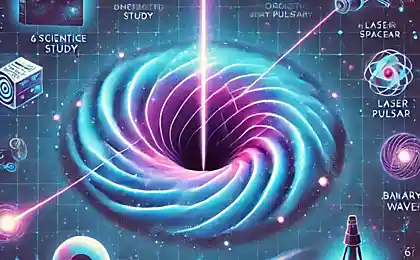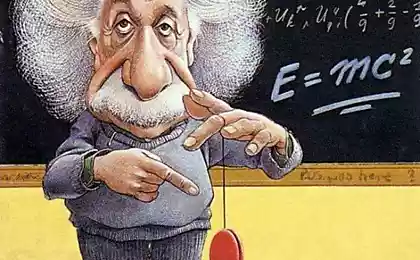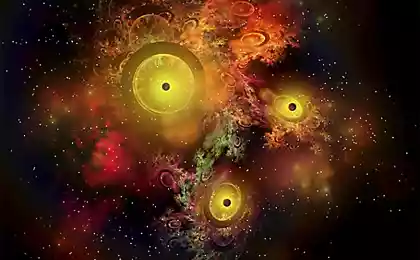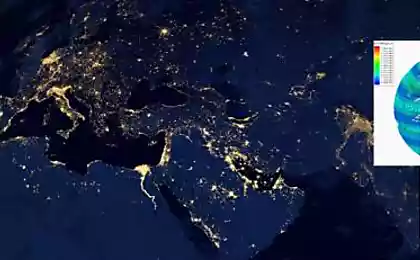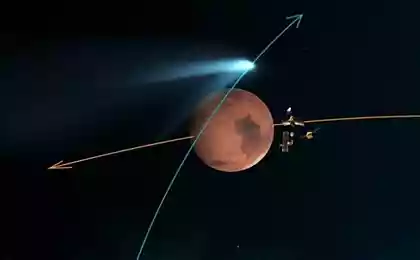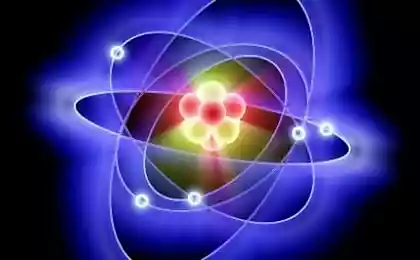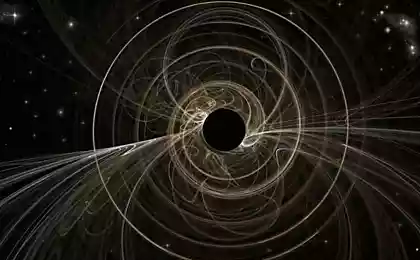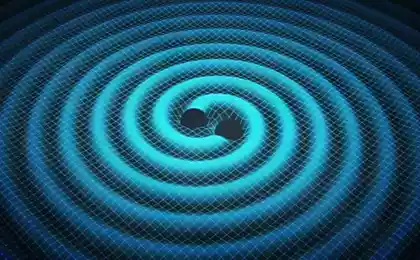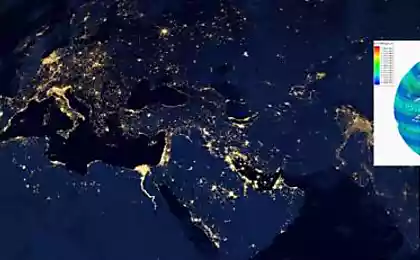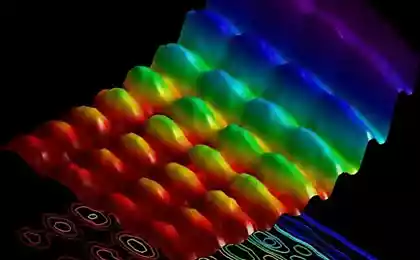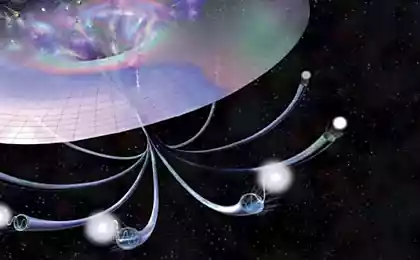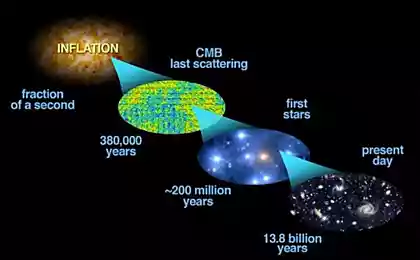216
After 11 years, physicists must rethink gravitational waves

Scientists working on the Parkes radio telescope announced that after 11 years of searching for evidence of gravitational waves, their search was left with nothing. This is a problem for physics, according to which gravitational waves must exist if general relativity is not subject to revision and remains reliable. Solving the inconsistencies may require rethinking the physics of black holes or the emergence of an even more serious physical theory. The results of the work of scientists were published in the journal Science.
Albert Einstein predicted the existence of gravitational waves shortly after he wrote general relativity, a prediction that became one of the most important in the theory. In principle, if gravity works as Einstein thought, the motion of massive bodies should produce ripples in space-time. We are often asked to think of gravitational wells as conical indentations caused by falling bowling balls onto a two-dimensional sheet of rubber, and we can imagine that if the balls move along the sheet, the indentations will move along with them.
The “wave” comes about because gravity does not act instantaneously, but at the speed of light; remember the old thought experiment on the sudden disappearance of the sun? Earth will remain in orbit for a few minutes — long enough for waves of diminishing gravity to travel the distance from the epicenter to Earth. Less severe changes in gravity (e.g., if a star simply moves rather than disappears) will cause less severe gravitational waves.
Parkes Telescope scientists tried to detect these waves by looking at the arrival times of regular signals from known pulsars. The supercomputer’s setup – to look for any patterns of discrepancies in nanoseconds of the arrival time of these pulses – would theoretically reveal any powerful perturbations in the space-time topology. And if that pattern had moved over time, congratulations, you'd picked up a traceable gravitational wave. Scientists especially observed the interaction of black holes, because the collision of two such dense bodies should have caused a gravitational wave that could be observed using modern equipment.
In addition to wanting to test the theory of relativity, physicists wanted to detect gravitational waves because they are a unique source of information about the universe. If two large galaxies collide, the supermassive black holes that should be at the center of each galaxy will collide at some point. From a light-gathering perspective, this event would be completely invisible, being hidden by the light of the surrounding stars — but not in terms of gravity. If physicists could observe gravitational waves, or rather their ripples, in the universe as a response to the movement of large masses, they could hypothetically look beyond the barrier and observe a direct collision of black holes.
What now? There are several options. Aren't there black holes? Not likely. Are they not as they were predicted? Possible, but unlikely, too. It is more likely that these collisions do not occur as previously predicted. Scientists suspect collisions may occur faster, producing large gravitational waves for a shorter period of time. Traditional understanding of black holes suggests that their collisions should be a fairly long dance - but now it seems that this is not the case.
Previously, some scientists claimed to have detected gravitational waves, but their claims did not pass the scrutiny of the scientific community. Physicists do not abandon the idea of the existence of gravitational waves, but rather think about how to detect them for sure.
P.S. And remember, just by changing our consumption – together we change the world!
Join us on Facebook, VKontakte, Odnoklassniki
Source: hi-news.ru
